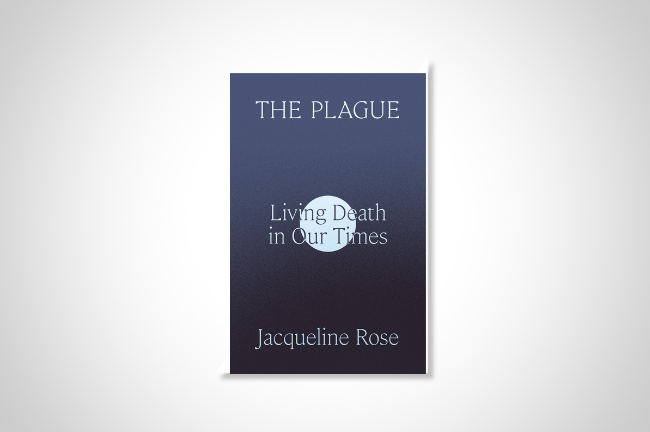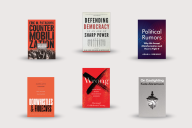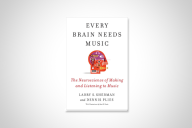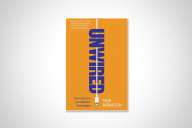You have /5 articles left.
Sign up for a free account or log in.

Macmillan Publishers
The year 2020 was—among other things—the centennial of Sigmund Freud’s Beyond the Pleasure Principle, a difficult little book speculating that the deepest recesses of the psyche harbored not only the libido (which ensured that a species kept reproducing itself) but a death drive as well.
In spite of the name, this drive was not suicidal in nature. On the contrary, Freud considered it intimately bound up with the ego’s craving for power over the outside world. “The organism wishes to die only in its own fashion,” he wrote. The death drive manifested a kind of sovereignty. It usually expressed itself as aggressive or destructive behavior against others, in response to threats, real or imagined.
A good many Freudians were dubious about this turn in their master’s thinking, which he acknowledged as speculative in any case. But its pessimism (“The aim of all life,” he wrote, “is death”) was in tune with the moment. World War I had ended the year before; faith in the invincible march of progress was lost in the rubble. Oswald Spengler’s The Decline of the West was a best-seller, and T. S. Eliot was drafting pages of what would become “The Waste Land” (1922).
But the zeitgeist (always a convenient explanatory device) hardly accounts for the complexity of Freud’s book, with its strange pivots of argument. The British literary critic Jacqueline Rose suggests that Beyond the Pleasure Principle shows the impact of an especially traumatic development in Freud’s life. Early the same year, his daughter Sophie died from the influenza pandemic then raging. She was a couple of months shy of her 27th birthday. Without reducing Freud’s text to the status of a biographical document, Rose’s The Plague: Living Death in Our Times (Farrar, Strauss and Giroux) points to a faint element of consolation it implies:
“Better death as a silent companion,” she writes, “than a death that falls out of the skies. A remorseless law of nature is preferable to a death that should—might—not have taken place.”
The author, a co-director of the Birkbeck Institute for the Humanities in London, delivered the Annual Freud Memorial Lecture for 2020—as a live stream, of course. It is one of the five essays (not counting the introduction and afterward) making up The Plague, with the COVID-19 pandemic always a spur to her thinking. But her guiding preoccupation might be more precisely defined as the problem of (to borrow a line from the memorial lecture) “what happens, during a time of collective trauma, to the mind’s innermost relationship to itself.”
That may sound like a call for introspection, but Rose’s essays are never private in focus. It is the public discourse she finds symptomatic. The consoling notion that “we’re all in this together” was a distraction from the inequalities in COVID’s impact, including the spike in domestic violence against women. The pandemic killed millions, though grief and mourning have had precious little public expression. (An emotional lockdown remains in force.) Invited to comment on the future after COVID, she points to a shattering of “the illusion that we can predict what will happen in the space of a second, a minute, an hour, or a day.” But illusions tend to mend themselves, especially given the mind’s expedient of forgetfulness.
“As long as COVID remains a global presence,” she writes, “waves of increasing severity will be possible anywhere and at any moment in time.” Fully facing this reality would be overwhelming; so thought stops.
The psyche as conceived by Freud is fully capable of holding antithetical possibilities at the same time. (There is no pandemic, but the government created it, and the vaccine is more deadly than the virus, which it’s healthiest to develop an immunity to by catching it.) “The more insecure things appear,” Rose says, “the more confident, assertive, and controlling we need to become in order to master both the world and ourselves.” In politics this can take the form of authoritarian demagogy—already vigorous before the pandemic started. “I have lost count of the number of times over these past years when it has felt as if those in power, without a tremor of self-doubt, were inviting us to enter the bubble of a world gone completely mad,” she writes. It certainly felt that way when the leader of the most powerful country on the planet went on television to suggest the public could fight the virus by consuming household disinfectants.
The dangers of xenophobia, scapegoating and the politics of purifying exclusion all haunt the book. Rose takes Freud’s speculative text from 1920 as a lasting challenge to complacency. “It turns violence into the internal property of everyone,” she writes. “This aspect of the [death] drive proved to be an idea even more scandalous than Freud’s earlier belief that the drive for pleasure was the chief motivator of human life. Not least because it put paid to the cherished illusion that the evils of the world are the responsibility of everyone other than oneself.”
What would it be like to live and act free of such complacency? Rose’s lecture on Freud is the central panel in a triptych of essays that loom over the rest, the other two being on Albert Camus’s novel The Plague and on the sui generis French thinker Simone Weil, with each author offering something like an antidote to the compulsive moral self-blinkering that is our first line of defense against an uncontrollable world.
Either essay is much too rich to be described at less than the present note’s length—and there is a tight thematic braiding between them. For now, let it suffice to sum up the challenge of the present with a line Weil wrote during World War II, which she did not survive. “Hope,” she said, “but in moderation.”



